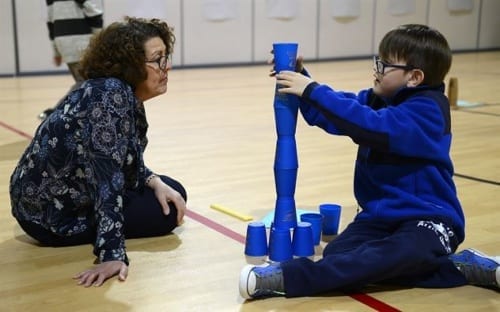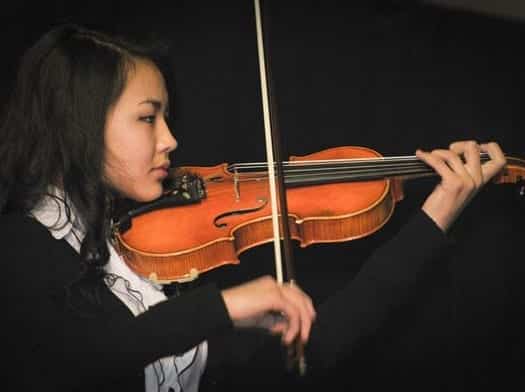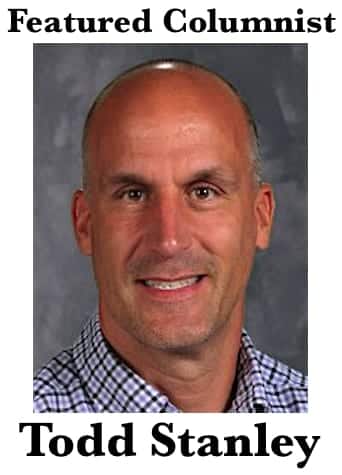 As a gifted coordinator, I get asked a lot of questions. Curiously, the question I probably get asked the most is not what great things are you doing, how can I be involved, or what way do we best reach our gifted students? The question I get asked the most is what does a gifted coordinator do? Even by adults. When I was a teacher, it was easy. Someone asked what I did, I stated I was a teacher, and they just nodded their head like they knew what that meant. Now when I say I am a gifted coordinator, I get a look that indicates befuddlement.
As a gifted coordinator, I get asked a lot of questions. Curiously, the question I probably get asked the most is not what great things are you doing, how can I be involved, or what way do we best reach our gifted students? The question I get asked the most is what does a gifted coordinator do? Even by adults. When I was a teacher, it was easy. Someone asked what I did, I stated I was a teacher, and they just nodded their head like they knew what that meant. Now when I say I am a gifted coordinator, I get a look that indicates befuddlement.
Explaining it to students is the greatest challenge. They will ask, “are you a teacher?” When I inform them I am actually the district gifted coordinator; they ask “what is that?” My initial response is always “I coordinate gifted” as though the title bespoke the duties involved. This only causes more confusion though. The challenge is explaining the many things a gifted coordinator might do so that a person who knows nothing about it can understand the basics.
So, that leads me to the question, “what does a gifted coordinator do?” To steal a phrase my educational law professor always used; it depends. Much like gifted itself which is defined differently from state to state, district to district, so too is the idea of what a gifted coordinator should do.
 For example, I have been a gifted coordinator in two different districts, literally right next to one another and serving similar students. However, the expectations in each district were very different. In my original district, the district gifted coordinator had always been a part-time position. They usually got a retired administrator to take on the task or simply added the task to another administrator’s plate. When I was hired, I was still a classroom teacher. Two and a half days a week I would work with students as part of my regular classroom. The other two and a half days I would focus on gifted coordination.
For example, I have been a gifted coordinator in two different districts, literally right next to one another and serving similar students. However, the expectations in each district were very different. In my original district, the district gifted coordinator had always been a part-time position. They usually got a retired administrator to take on the task or simply added the task to another administrator’s plate. When I was hired, I was still a classroom teacher. Two and a half days a week I would work with students as part of my regular classroom. The other two and a half days I would focus on gifted coordination.
The main goal of the school district was compliance. They wanted to make sure they were compliant with the regulations the state education department had established for gifted. What this meant was simply maintaining programs we already had in place. We had an elementary program that pulled students out one day a week for gifted services, and we had a magnet gifted team at the middle school/junior high that served 5th-8th graders.
In my two years as coordinator, I taught in these programs as well as coordinated the criteria for how a child qualified for the program, provided resources for those teachers in how to greater meet the need of these gifted students, and made sure there was documentation that these services were taking place. Because I was not administration, I was not given a budget, allowed to make decisions without running it by my supervisor, or even included in many of the conversations pertaining to gifted that did not involve the programs I was overseeing.
Given that I only had half my week to devote to coordination, keeping the existing programming going was a bulk of my time and I was hyper-focused on this goal. What this meant was I had a very small picture view of the district, seeing only the programs that were directly affecting gifted students who qualified for them. In a district with 13 buildings, I rarely made it to one of them that did not have gifted programming in them even though there were gifted students present.
 Then I had the chance to change districts. My new district offered me a full-time position as an administrator. It also gave me resources I had not had previously, including a budget, power to make decisions, a coach for teachers and five days a week to do my job. What this allowed me to do was to have a wider view of the district in regard to gifted. This new district also had elementary pull-out and a middle school magnet program. But I have had the opportunity to expand these services and tailor the needs to individual buildings. Just having conversations with building principals have gone a long way in figuring out ways to best reach students in their schools who are gifted but did not qualify for the gifted programs. Even non-gifted but high achieving students were helped by the work we were doing.
Then I had the chance to change districts. My new district offered me a full-time position as an administrator. It also gave me resources I had not had previously, including a budget, power to make decisions, a coach for teachers and five days a week to do my job. What this allowed me to do was to have a wider view of the district in regard to gifted. This new district also had elementary pull-out and a middle school magnet program. But I have had the opportunity to expand these services and tailor the needs to individual buildings. Just having conversations with building principals have gone a long way in figuring out ways to best reach students in their schools who are gifted but did not qualify for the gifted programs. Even non-gifted but high achieving students were helped by the work we were doing.
Throughout the course of the week, I may travel to all 14 buildings in my district, working with teachers on how they can best challenge their gifted students whether they are offering formal gifted services or not. Because I have a much larger view of gifted in the district, it allows me to reach more gifted children whether it be direct gifted services or extra-curricular activities. Basically, I am helping more kids.
 These two examples represent ends of a spectrum. Different coordinators fall onto different places on this spectrum depending on their job description and the expectations of the district. Ideally, every district would have a full-time gifted coordinator who is gifted-certified who would be looking out for this specialized group of students. Unfortunately, this is not always the case. There are some districts that simply put the responsibility on a principal or assistant superintendent who has their fingers in many other pies, meaning their attention to gifted will be limited at best.
These two examples represent ends of a spectrum. Different coordinators fall onto different places on this spectrum depending on their job description and the expectations of the district. Ideally, every district would have a full-time gifted coordinator who is gifted-certified who would be looking out for this specialized group of students. Unfortunately, this is not always the case. There are some districts that simply put the responsibility on a principal or assistant superintendent who has their fingers in many other pies, meaning their attention to gifted will be limited at best.
There are other districts that employ an entity such as an educational service center which provides a coordinator who is overseeing several districts. Again, not the most ideal situation because this is spreading this person thin and makes it difficult to individualize the service to specific students. This is not to say these people are not trying to do their best for gifted students nor is it a condemnation of these methods of coordination. It is just to say that there is only so much time to give in a day and the focus is not fully being on gifted.
Whichever method a district employs, I would say the number one goal of a gifted coordinator no matter what their situation, is to be an advocate for gifted children. Although many parents of gifted students are vocal and try to get what they can for their children, from the school side of things a coordinator might be the only one looking out for this group of students.
Many times, gifted gets the short shrift in regard to funding, budget, and attention. Because many times gifted students will be fine even without these services, schools focus their attention on other groups who may not be fine if they are ignored or where it is the law to pay attention to them. This gifted advocacy might take many forms. It might be getting as many gifted services as possible so that more students might have the opportunity to take part in them. It might be providing opportunities for gifted students to be enriched.
Regardless of the shape it takes, as long as you are operating with the mantra of “is this what is best for gifted kids,” then a coordinator is doing a great job.
- NAGC – Building Bridges and Moving Mountains: The Gifted Coordinator Role
- Daily Record – 9 percent of Cañon City School District enrolled in gifted program
- Portland Daily News – ‘Scioto Gives’ to ESC Gifted Program






